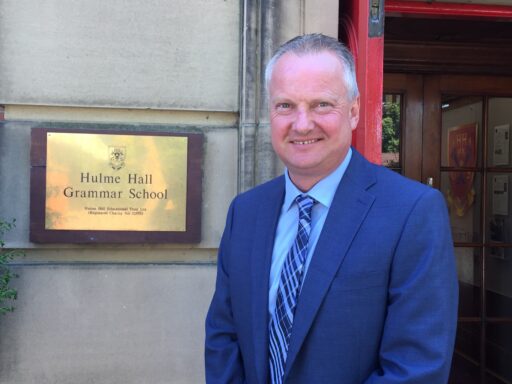Dear Reader,
Welcome to the latest edition of my “Headmaster’s Blog”.
Given that this week is Anti-Bullying Week, I thought it might be appropriate to focus on this as a topic for the blog. Here at Hulme Hall, our overriding objective is to ensure that each child feels safe and happy at school, not least because that is the very least they should expect from their school environment, but also because a happy child is much more likely to thrive and take the most from their educational experience.
We began Anti-Bullying week in school with an assembly based around this year’s theme from The Anti-Bullying Alliance, which is “One Kind Word”. Pupils have then been discussing issues such as cyberbullying and the support networks available to them in PSHE lessons and form time.
In recent times, our news outlets and social media seem to be full of stories that can be traced back to bullying and intimidation of one form or another. For example, the stories relating to peer on peer abuse or sexual harassment in school and colleges, or even the accounts of cricketer, Azeem Rafiq’s, treatment whilst he sought to establish his career in that profession.
I don’t think any Headteacher can claim that their school is free from bullying and, of course, bullying can take many forms. Some are much more obvious to spot than others and can therefore be dealt with quickly and effectively. Other forms of bullying, though, such as psychological bullying, through comments made on social media perhaps or exclusion from within a group can take some time to spot and the impact can be much worse if these issues are not addressed speedily.
It is vitally important that parents, teachers and indeed all school staff are always on the look out for any signs that something might be wrong. If parents notice anything amiss, I would always encourage them to get in touch with the Pastoral Team at school as soon as possible, so that any possible issues can be addressed. It may be that nothing is wrong, but better to check than miss something and leave a child vulnerable.
This applies especially in cases of peer on peer abuse or sexual harassment and it is clear that schools must take a zero tolerance approach to such issues. Sexualised comments cannot simply be dismissed as banter. I think many, if not all of us involved in education, were shocked by the scale of the problem revealed by the accounts provided to the Everyone’s Invited website. At least some good can come out of the situation, in that schools and colleges have now become refocussed in their efforts to identify and deal with such issues appropriately.
The key thing for me is that pupils in our school have the confidence to report any concerns they may have, whether they relate to themselves or their friends, to our school staff. We have a very capable and experienced team, led by Mrs Smith (our Assistant Head and Designated Safeguarding Lead) and Mrs Conway (Pastoral Manager and Deputy Designated Safeguarding Lead), but I would hope that our pupils could speak to any member of staff they might trust to seek help or advice should they need it.
Also, the organisation “Kooth” offers an online mental wellbeing support community through their website. This is a free, anonymous service, which can help with digital mental health – please see the link below:
Thank you for reading.
Dean Grierson.


